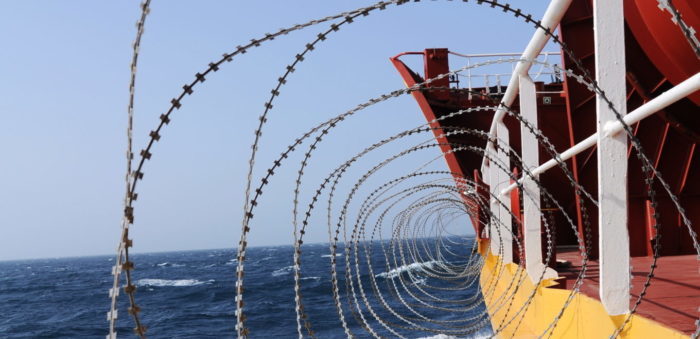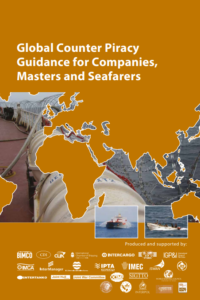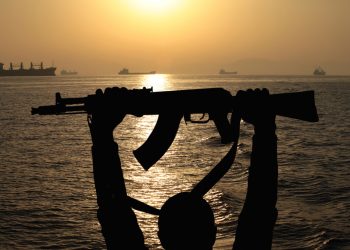The Round Table of international shipping associations plus the OCIMF representing the global shipping and oil industry have announced that the geographic boundaries of the ‘High Risk Area’ for piracy in the Indian Ocean have been reduced.
The High Risk Area reflects the area where the threat from piracy exists, while also recognising the current containment of pirate attacks in the Indian Ocean. The industry group of shipping and oil industry organisations BIMCO, International Chamber of Shipping (ICS), INTERCARGO, INTERTANKO and the Oil Companies International Marine Forum (OCIMF) responsible for establishing the High Risk Area emphasised that a serious threat remains despite the reduction to the area’s geographic boundaries and that correct reporting, vigilance and adherence to 5th edition of the best management practice (BMP5) remains vital.
[smlsubform prepend=”GET THE SAFETY4SEA IN YOUR INBOX!” showname=false emailtxt=”” emailholder=”Enter your email address” showsubmit=true submittxt=”Submit” jsthanks=false thankyou=”Thank you for subscribing to our mailing list”]
The reduction to the High Risk Area considers recent shipping industry experience, pirate intent and capability and follows extensive consultation with nations, collations and military naval forces, including Combined Maritime Forces, EUNAVFOR and the United Kingdom Maritime Trade Operations (UKMTO), which provide advice and protection to shipping.
The regional UKHO Maritime Security Chart, Q6099 will be updated by Notice to Mariners and a new version will be produced to reflect these changes which will take effect from 1 May 2019.
In summary:
- The area previously classified as “high risk” forms only a part of the area called the Voluntary Reporting Area (VRA);
- Ships entering the VRA are encouraged to report to the UKMTO to be monitored during transit and register with the Maritime Security Centre for the Horn of Africa (MSCHOA);
- Pre-transit risk assessments should take into account the latest information from both the VRA and High Risk Area.
The industry associations also noted that in view of the continuing threat of pirate attacks, shipping companies must comply with BMP5.They should also be careful in their voluntary reporting on piracy incidents, sighting of potential pirates, and any suspicious activity. These actions will provides crucial intelligence on risk levels in the area.
Specifically, the new coordinates of the HRA are the following:
In the Southern Red Sea:
Northern Limit: Latitude 15 o 00’N
In the Indian Ocean a line linking:
From the territorial waters off coast of east Africa at Latitude 05 o 00’S to 050 o 00’E
Then to positions:
Lat: 00o 00’N
Long: 055 o 00’E
Lat: 10o 00’N
Long: 060 o 00’E
Lat: 14o 00’N
Long: 060o 00’E
Then a bearing 310o to the territorial waters of the Arabian Peninsular.
The HRA will be adjusted again if and when the situation demands it.
The IMO’s Maritime Safety Committee (MSC) adopted a resolution in May 2011 on the Implementation of Best Management Practice Guidance, recognising the urgent need for merchant shipping to take every possible avenue to protect against pirate attack.
Additionally, to assist in the prevention of piracy and armed robbery, the IMO has produced Circular MSC.1/Circ.1334 Guidance to shipowners and ship operators, shipmasters and crews on preventing and suppressing acts of piracy and armed robbery against ships. The guidance advocates effective self-protection measures as the best defence and recommends areas where action can be taken, such as reducing the amount of cash carried on board and emphasising the need for discretion regarding the future movements and possible cargo of ships.
In addition, further interim guidance on the use of privately contracted armed security personnel (PCASP) on board ships to counter Somali-based piracy has also been approved by an IMO intersessional working group, on 2011.
See more details on how to be protected from maritime piracy, on the PDF herebelow































































